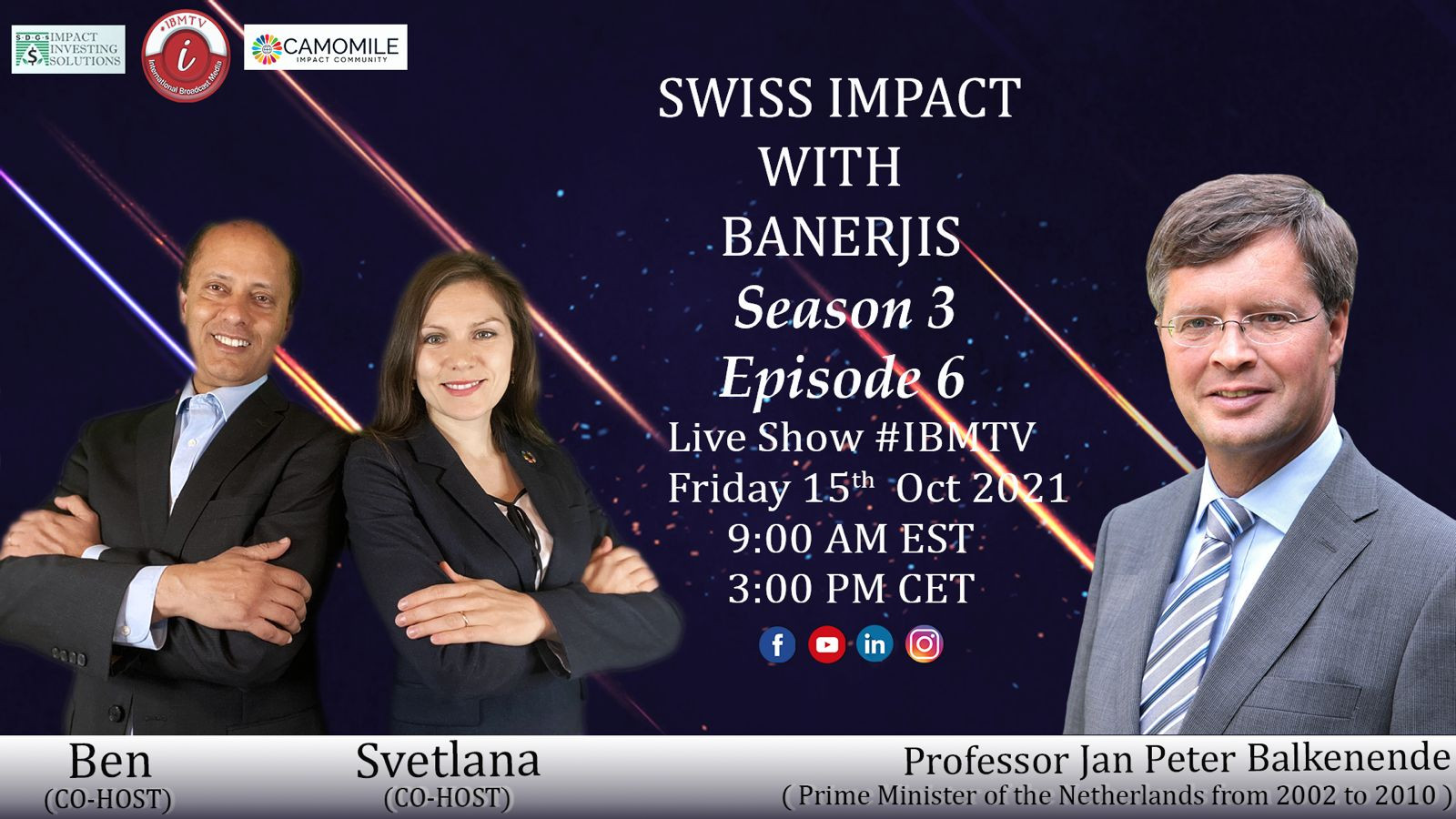
Are we on track?
“You can never be successful in a world that fails”.
Last Friday, we had one of the most thought provoking discussion with one of my old friend Prof. Dr. Jan Peter Balkenende, the former Prime Minister of the Netherlands.
This time I didn’t have a story to tell as the program was going to be a discussion anyway, especially on topics which interests us all. In many ways, I am proud that although my country is tiny and minuscule on world atlas, still it has been a global trendsetter in the sector of sustainability and impact investment.
Last week I was in the Netherlands on a 2 days long trip to show my son his country. Not only were we amazed with everything we experienced, but what my son noticed are the low prices, especially for us coming from Switzerland. Despite of having everything as well and sometimes even better organised, yet not expensive. How is this possible? To which our guest Jan Peter replied that one of the factors which has played a great part in the prosperity of the Netherlands is its capacity to innovate.
Our guest is not only the former Prime Minister of the Netherlands (2002-2010), but also Professor at Erasmus University Rotterdam, Member of the Club of Madrid, External Senior Advisor to EY, Associate Partner at Hague Corporate Affairs, Chairman at Dutch Sustainable Growth Coalition and Chairman at Noaber Foundation. Throughout his impressive professional trajectory, he has embodied the innovation principles of the triple helix, which encompasses cooperation between government, academia and businesses. After his life in academia where he was a professor at the Erasmus University Rotterdam, and his fruitful political career which led him to become Prime Minister of the Netherlands, he successfully made his way into the business sector. He then co-developed the “Dutch Sustainable Growth Coalition” initiative, which is comprised of 8 companies that are working on sustainability issues. The common elements of his endeavors in the number of organizations and institutions where he is actively working on are geopolitical affairs, the future of Europe, sustainability, SDGs and circular economy.
Regarding the future of Capitalism in Europe, Jan Peter recognized the flaws of the hegemonic Anglo-Saxon capitalism, and celebrated the alternative kinds of capitalism which are products of the increased awareness as discussed below. He pointed out that the evolution of the paradigm led to the stakeholder capitalism, among others, having the core principles of long term thinking. Going beyond shareholders to include all the stakeholders, and having the right balance between economic, social and ecological aspects.
Jan Peter recognized Europe’s leadership regarding the SDGs, however, he pointed out that we (in Europe) are not on track yet. On the other hand, he emphasized that there have been significant improvements that haven’t been measured or reported properly, such as the increased awareness, which is a critical step towards the right direction. On this topic, he suggested that a meaningful change would require us to rethink our views, methods and techniques on measurement in a way that they depict success not only through short term financial results, but also by considering the societal elements, for they will increase its long-term value as a whole.
He invited us to consider SDGs as a joint effort in which we all should cooperate. By allowing others to reflect in our business performance we will be able to detect its flaws and thus act on it. Moreover, he suggested that if your business accurately report its performance, its chance of attractive investments from financial industry will increase.
Jan Peter then shared with us his insight about inter-generational responsibility. He added that the longer we take to act the higher the price will be in the future, and our failure to act will leave a huge burden for next generations. He pointed out that people who have power at this moment are the ones who can foster change, for he considers the means are there, the only thing missing is the willingness to do it.
Finally, Jan Peter called us to take action. “Think about your own responsibility, how can I contribute to the new realities, what am I doing now, and am I happy with it or should I rethink my own responsibility?”.
“It is our obligation to take care for a situation that we have created, and contribute to a better world in which no one should be left behind”
With this finished our program last Friday. For those who missed it can watch it at one of the following channels:
- Youtube: Swiss Impact
- Podcast: https://podcast.svetaandben.com/
- SmartTV: easiest way is to just download Binge App on your phone, etc
Please don’t forget to join us coming Friday on another amazing Show, and this time with a Fund from Liechtenstein which is transforming the life of many. They will tell us of how they have been successfully turning Poverty into Opportunity.
